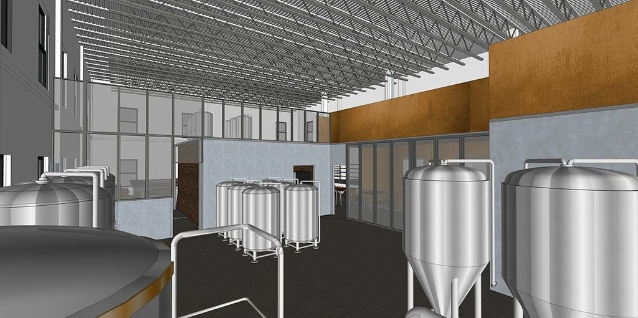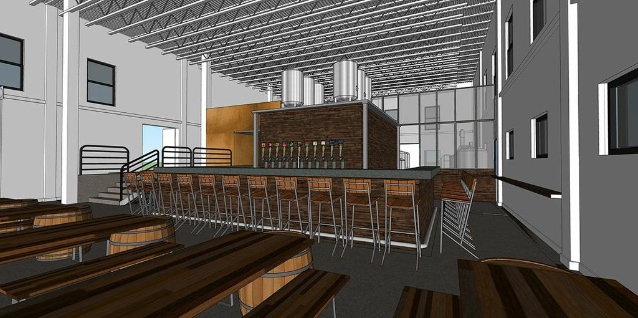
It took nearly three years, but Boston-area craft beer producer Somerville Brewing Company, has finally found its home.
The company, which first introduced its “Slumbrew” line of beers in October 2011, today announced it has signed a lease on a 3,600 sq. ft. space in Somerville and plans to open a new production facility and taproom within the next six months, pending federal, state and local permitting.
“This is a huge moment for us,” co-founder Jeff Leiter told members of the media at a private press event.
The moment was, incidentally, so important for Slumbrew co-founder Caitlin Jewell that she marked the occasion by spilling the first bottles of beer at 15 Ward Street, where the facility is located.
But hey — it’s not officially a brewery until some beer ends up on the floor, right?
Leiter said the company — which currently brews its beer under contract at Mercury Brewing in Ipswich, Mass. — will install a 10- or 15-barrel brewhouse and enough fermentation capacity to support 2,500 barrels of production annually.
“We will be supplementing what we’re already making at Mercury Brewing,” he said. “All of the packaged (bottled) beer will continue to be made at Mercury Brewing for the time being.”
Moving into the new space will allow Somerville Brewing to expand its line of “more esoteric beers” and work on “creative projects,” like a barrel-aging program, Leiter said. The entire project is expected to cost roughly $500,000 and is being financed with a combination of bank loans and cash flow.
“We wanted to invest within our means and stay in Somerville,” said Jewell. “This is what we can afford. This is what we have earned our way into after a few years in business.”
The taproom, Jewell said, will allow Somerville Brewing to connect more closely with its customers. Currently the company relies on beer festivals and tastings to meet new consumers.
“To build heart-share around your brand, if you don’t have a brick and mortar facility, it requires double the hustle,” she said.
While the brick and mortar facility will finally allow Somerville Brewing to interface with customers and make more money selling beer over its own taproom bar, warehousing capabilities and cost control were the two major considerations that Leiter and Jewell made when opting to expand.
Those factors are important for a small startup that, in 2012, produced around 2,000 barrels, all of which was made under contract. But with the new space, Somerville will be able to buy ingredients in bulk and take over the production of draft beer, allowing the company to realize some cost efficiencies, Jewell said.
“We think our keg prices (to wholesalers) are a little high,” she said. “For us to have any profit margin they have to be priced higher. This will allow us to get back into a more competitive price.”
But that’s not all. The company also plans to expand its set of offerings to include a line of alcoholic and non-alcoholic ginger beers brewed with organic ingredients under the “Zing Bier” label.
With the expansion, Somerville Brewing will also look to hire two more full-time employees as well as nearly 20 taproom staff, Jewell said.
Maybe even someone to mop the floors.

